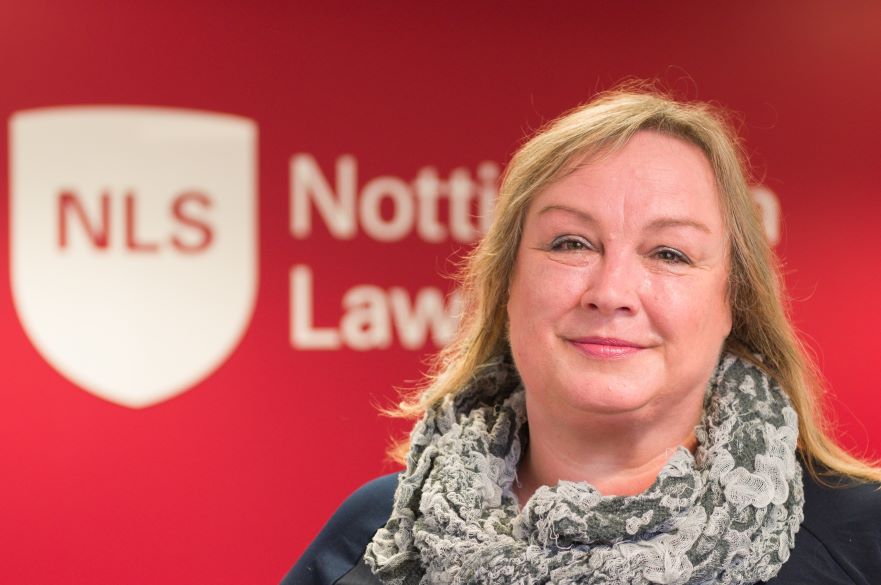Role
Julia has been working as a Law Lecturer at Nottingham Trent University since 2019. She currently teaches Company Law, Contract Law, Law in Action, and Legal and Professional Environment. She has also taught Criminal Law and Mooting, and Path to Professional Practice to LLB(Hons) students, and Law, Sentencing and Punishment to Criminology students from 2019-2022. She supervises both undergraduate and postgraduate students in their projects/dissertations and has a number of other responsibilities including pastoral care, adjudicating NEC requests, and she is one of NLS’s three Disability Tutors. Julia also sits on the Graduate Outcomes Survey task force and is the Senior Lecturer representative on Nottingham Law School’s Academic Standards & Quality Committee (SASQC). She is also a member of Nottingham Law School’s Staff Social Committee.
Career overview
Julia has been teaching law since 2002, during which time she has also been involved in setting up and accrediting a Policing Foundation Degree, and heading up two foundation degrees (Policing and Criminal Justice (Police Studies)). In addition to prior experience teaching English Legal System and Criminal Law, Julia also has experience of teaching Business Law, Employment Law, Law of Tort and Law of Evidence.
As well as working in education, Julia has worked across different sectors – public, private and voluntary. She has also set up and run her own business. She has extensive experience of project management; partnership work; commissioning; consulting service-users and using feedback to help develop services; and quality standards/performance management. Research projects she has overseen have informed central and local government funding decisions; measured wider outcomes for students; and measured impact of self-harm training. Julia has also led on two Charter Mark applications awarded for excellence in customer service; and one Matrix Standard inspection assessing quality of information, advice and guidance services in education.
Julia has also undertaken Legal Advice work during her years’ working for Trading Standards. She has successfully worked in partnership with the Police on a number of projects. She was one of the founding members of the Greater Nottingham Doorstep Crime Partnership, and has a special interest in working to protect vulnerable groups in society; much of her work in local government involved the protection of older people.
Research areas
It was Julia’s work on Doorstep Crime that triggered her research interest. She found that successive Governments were focussing their resources mainly on tackling itinerant rogue traders, with little being done to identify the extent of the problem caused by those rogue traders who registered their businesses as limited liability companies.
Julia graduated in 2018 with a PhD in Company Law from the University of Leicester. Her thesis: “Consumers - the Unwitting Victims of Corporate Abuse: Holding Rogue Directors to Account in the Closely-held Company” suggests that consumers dealing with rogue traders operating in the home repair and improvement market are most vulnerable to exploitation at the hands of those rogue traders who incorporate their business to trade as limited liability companies.
See under “publications” for further information of current research.
In addition to company law, Julia’s other fields of research include consumer law and contract law.
External activity
Julia has presented at the 15th Global Legal Skills Conference 2023 on the transferability (both globally and across diverse industries) of the iterative employability toolkit – the Skills Audit.
Publications
Julia is currently working on a journal for publication this year entitled “Closely-held companies – the perfect vehicle for abuse of the corporate form and consumer exploitation?” This journal critically evaluates the main problems caused by limited liability and the corporate veil when sole traders, particularly those operating in the home repair and improvement market, are permitted to benefit from these cornerstones of company law by registering their business. It analyses how, when the director and controlling shareholder are one and the same person, an accountability vacuum exists which encourages reckless risk-taking at the expense of consumers. Because of the doctrine of privity of contract, consumers must sue the (often under-capitalised) company rather than the rogue director responsible for causing their losses. This, plus the fact that consumers often see “Limited” at the end of a company name as conveying respectability, longevity and goodwill to be protected rather than the warning it was intended to convey, makes consumers more vulnerable to exploitation than if they were dealing with unincorporated rogue traders.
